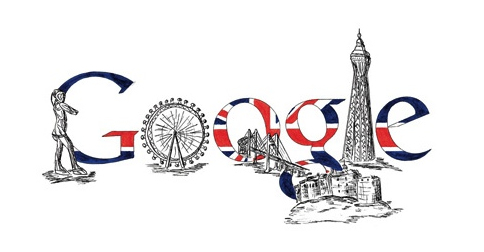 Some users in the UK are being switch to Google.com instead of using the default Google.co.uk when searching in Google Chrome.
Some users in the UK are being switch to Google.com instead of using the default Google.co.uk when searching in Google Chrome.
It’s unclear why it is just Google Chrome users that are being affected. The redirects are happening even when Google.co.uk is set as the default search engine, and when users are either logged in or logged out of their Google account.
Of course, if this is happening to a lot of users, it could have much greater implications, especially since many users might not notice they are suddenly on Google.com instead of Google.co.uk. Because many of the search results on Google.com, even when searching from the UK, are very much US-centric, this means that searchers are going to waste their time on sites that turn out to be for US users. Add to this, the fact that many UK websites are being pushed down further in the search results, which could mean those sites are losing out on traffic to sites that are leading the searchers needs. And lastly, this definitely isn’t good user experience.
Dave Naylor from Bronco is one of the affected users, on a Mac using Chrome. “I only have one machine that redirects me to the .com every time and it’s in the meeting room here. But I always manually edit the URL structure of the SERPS page to the co.uk so it doesn’t really affect me personally, but I can see it been in pain for users that are stuck in this deadly embrace if it’s their main machine that they use all the time.”
Patrick Altoft also noticed it.
Anybody else noticed that Google Chrome search bar now defaults to http://t.co/o9dtnyZZr9 ? very annoying
— Patrick Altoft (@patrickaltoft) January 26, 2015
Andrew Akesson also was affected with this Chrome issue. “Over the past week I noticed that, as the result of an update to their servers, Google have started automatically sending users in the UK to Google.com. Previously it was impossible to do this unless you added ‘/ncr’ to the end of the google.com domain or amended the location in the URL string – the only people that would be looking to do this are SEOs!”
There was the possibility that it could possibly be “Right to be Forgotten” related, but many of the queries were for searches that would not trigger a “Right to be Forgotten” result. So it’s not a an attempt to get around that, as a result for the been removed due to “Right to be Forgotten” requests will still show up in Google.com, even though they been removed in Google.co.uk or another EU version of Google.
It is likely that it is the bug of some sort. However because it is very difficult for users to be able to switch back to Google.co.uk once Chrome decides Google.com is where they should be, it could really affect those users Google user experience and the results they find, especially if they tend to do a local searches for searches that could show UK businesses first.
Update: John Mueller from Google suggests affected users submit this form. I have asked why this is only happening on some computers but not others that are on the same IP, and only in Google Chrome and not other browsers. I will update again if there is an answer.
Jennifer Slegg
Latest posts by Jennifer Slegg (see all)
- 2022 Update for Google Quality Rater Guidelines – Big YMYL Updates - August 1, 2022
- Google Quality Rater Guidelines: The Low Quality 2021 Update - October 19, 2021
- Rethinking Affiliate Sites With Google’s Product Review Update - April 23, 2021
- New Google Quality Rater Guidelines, Update Adds Emphasis on Needs Met - October 16, 2020
- Google Updates Experiment Statistics for Quality Raters - October 6, 2020
Chris Buckley says
I’ve had this exact problem for the last few months, and as of yet I’ve been unable to fix it. It seems the BaseURL defaults to Google.com, and I assumed there would be a simple setting to correct it, but currently not.
I thought this might do the trick – http://superuser.com/questions/578228/how-to-restore-the-default-google-search-engine-in-chrome, but I was unable to find any of those two strings in the “Local State” file.
Chris.
Victoria says
I thought I was losing my mind! Glad it’s not just me that noticed this. Pretty annoying when I am trying to search for local queries… thanks a bunch Google!